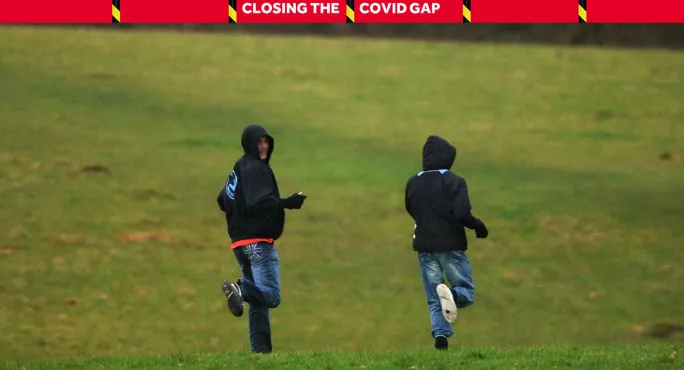- Home
- Pupils’ Covid catch-up fears ‘could increase truancy’
Pupils’ Covid catch-up fears ‘could increase truancy’

The growing attainment gap which hit disadvantaged pupils under lockdown could widen even further in September as pupils play truant due to their anxiety about attending school, a charity has warned.
Pupils living in poverty have had “either no homeschooling at all, or have found it incredibly difficult to learn at home” Buttle UK has concluded after surveying 1,000 teachers and other frontline staff working with pupils.
The children’s charity says some pupils believe they have fallen so far behind in their schoolwork that they’ll never be able to catch up, and therefore will be more inclined to play truant.
Buttle UK: How to help your pupils close the Covid gap
Exclusive: Covid-19 ‘widens achievement gap to a gulf’
Coronavirus: Millions of pupils ‘have done hardly any work at home’
“Some pupils won’t want to go back because they know what’s coming in the sense that they’re going to be divided from the rest of their classmates in certain situations,” Buttle chief executive Joseph Howes said.
Coronavirus: Pupils’ anxiety about catching up with schoolwork
“There is an interest here from frontline workers about truancy levels because of that fear, and it makes sense to me because if I was going back into an incredibly difficult environment where I may feel way behind others, and I was worried about how I would ever catch up, then I’d consider not going in.”
He said teachers would face an attainment gap in their classrooms this September between pupils who had been taught at home and those who had “done absolutely nothing”.
Buttle, which provides grants to some of the country’s most disadvantaged children, today publishes a report outlining the findings of its survey of frontline workers, including teachers, social workers and charity workers.
The report states: “Respondents felt that having months out of education, living in chaotic environments with disrupted routines and no formal education will make it very difficult for children to adjust back to routines within school.
“Many frontline workers are concerned that it will be impossible to catch up with the missed schoolwork, or that children will be too anxious after falling behind to attend school, further increasing the educational divide between classes and truancy.”
The survey also shows that food poverty is seen as having the biggest impact on the education of disadvantaged pupils - with 33 per cent of frontline workers saying lack of food impacted on education compared with 26 per cent who cited lack of digital access.
Other findings were:
- 36 per cent of respondents said there would be barriers for disadvantaged pupils around getting back into “a structured attentive routine” in September.
- 30 per cent reported that there would be issues around gaps in schooling and catching up.
- 15 per cent noted (unprompted) specifically that children have not been homeschooled during the lockdown period.
- 24 per cent had found barriers to homeschooling due to parental mental and physical health issues.
- 12 per cent reported barriers to homeschooling due to parents’ limitations in literacy and education and English language capabilities.
The findings come as Tes runs a series of #ClosingtheCovidGap reports on the challenges faced by schools in helping vulnerable and disadvantaged pupils to catch up as they come out of lockdown.
The Department for Education has been contacted for comment.
Register with Tes and you can read two free articles every month plus you'll have access to our range of award-winning newsletters.
Keep reading with our special offer!
You’ve reached your limit of free articles this month.
- Unlimited access to all Tes magazine content
- Save your favourite articles and gift them to your colleagues
- Exclusive subscriber-only stories
- Over 200,000 archived articles
- Unlimited access to all Tes magazine content
- Save your favourite articles and gift them to your colleagues
- Exclusive subscriber-only stories
- Over 200,000 archived articles



